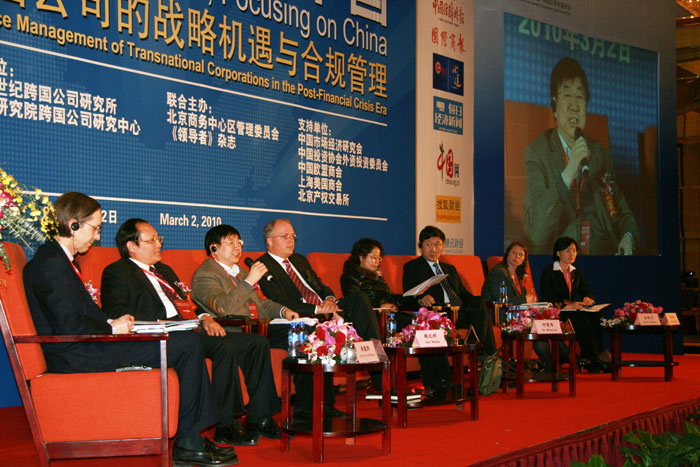Low-carbon revolution is on the way
The concept of a low-carbon economy is becoming increasingly popular and China should face the challenge of dealing with the upcoming revolution, according to experts at the 8th Transnational Corporations China Forum 2010.
The 8th Transnational Corporations China Forum 2010 was organized by Chinese Academy of International Trade & Economic Cooperation, Ministry of Commerce, and aimed to discuss the strategic opportunities and compliance management of transnational corporations in the post-financial crisis era.
|
|
|
The concept of a low-carbon economy is becoming increasingly popular, according to experts at the 8th Transnational Corporations China Forum on March 2, 2010. [China.org.cn] |
Xiong Yan, chairman of the China Beijing Environment Exchange and China Beijing Equity Exchange, said that a low-carbon economy will change China's economic system and is interrelated with each person and their communities, which is why it has become known as the "low-carbon revolution."
He said that China's decision last year to reduce the intensity of carbon dioxide emissions per unit of GDP by 40 to 45 percent by 2020, compared with the levels of 2005, will require changes to the law and policy and cause improvement of the development of technology.
"It will transform the structures of economy, industry and energy, including the area of renewable energy, energy efficiency, forest carbon sink, low-carbon transportation and pattern of consumption," Xiong said.
Wu Changhua, director of the Climate Group Greater China, said developing a low-carbon economy is a difficult but essential process.
She said it's a global issue and the world needs a clean revolution, with participation from everyone; decision makers to the children.
"Although China has achieved huge development in the past decades, it also paid a high environmental cost. When transnational corporations take opportunities to develop themselves, they also should take more responsibilities in the future, such as improving the standard of industry and develop green technology," Wu said.
At the same time, Wu said along with the low-carbon economy progress, international communities have misunderstood China; the country tries hard with this issue and contributes a lot. "As low-carbon economy rises, it will have profound effects on the export market, and may have more financial barriers, for example the carbon tariff and trade protectionism," said Yang Yi, director of Bureau of Industrial Injury Investigation of MOFCOM.
He said these barriers will decrease the advantage of production cost in developing countries and countries like China are under huge transition pressures.
Despite the problems, Xiong said China still has opportunities in this revolution. "China has reduced carbon emissions per unit of GDP by 47 percent from 1990 to 2005, and I believe it is practicable to achieve its goal for 2020," Xiong said. "But the way to cope with carbon emissions was mainly administrative means, and nowadays, it would cost too much."
Therefore, Xiong said, the best way to pursue low-carbon economy is to combine administrative, economic and legal methods.
"As an economic issue, low-carbon revolution still relies on economic system and market mechanism. We should use economic measures to change it, such as giving rewards or punishments to the enterprises."
Meanwhile, Xiong said the carbon emission market shows that in the future, it will be possible to launch carbon dioxide reduction in certain areas and industries; moreover, China has companies which volunteer to cut their carbon emissions due to environmental concern.
 0
0 








Go to Forum >>0 Comments